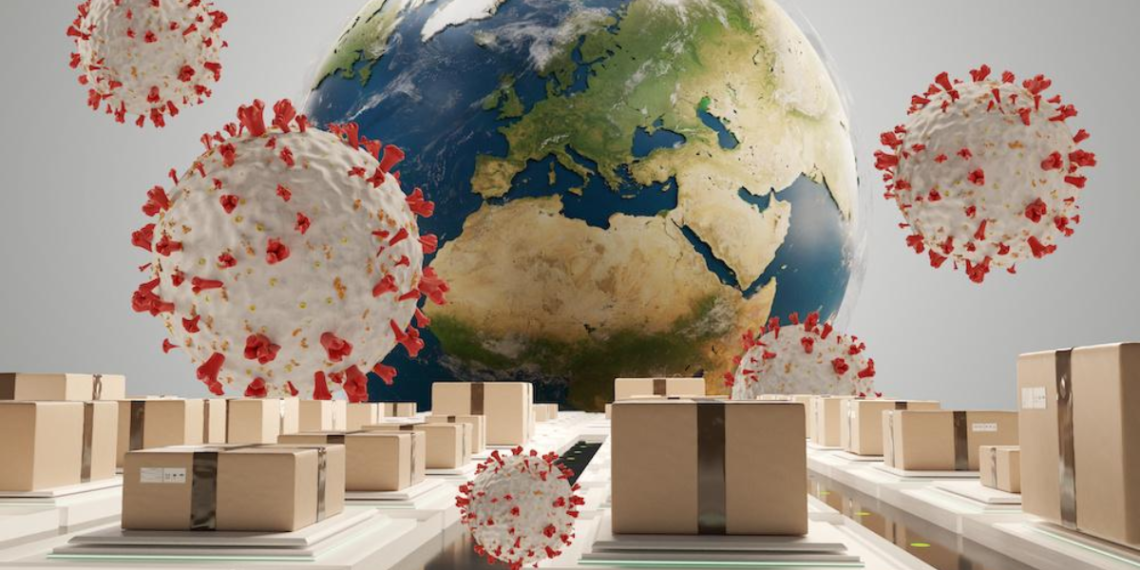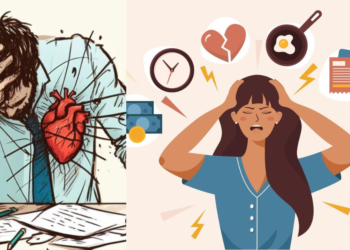New Delhi:
By Goher Ul Islam
It has been more than five years since the COVID-19 outbreak shook the world, but its presence is still deeply woven into our everyday lives in 2025. Although vaccines, medicines, and public health measures have largely reduced the immediate danger, the pandemic was never just a health crisis. It was a social, economic, and cultural turning point, the aftershocks of which continue to be felt globally.
Health Beyond the Virus
While the virus is no longer creating large-scale emergencies, the health sector is still struggling with its aftermath. A considerable number of people live with long COVID a condition that brings persistent symptoms such as muscle weakness, memory problems, and difficulty in breathing. This has created a new patient population that requires continuous care, adding weight to already overburdened healthcare systems.

Equally important is the impact on mental health. Lockdowns, fear of infection, and loss of loved ones left scars on individuals. Anxiety, depression, and sleep disorders surged during the pandemic years, and even in 2025, counselors and psychologists report higher demand for therapy sessions compared to pre-2020 levels. COVID-19 proved that health is not just about physical well-being but also emotional resilience.
Economic Ripples That Still Spread
The global economy may have reopened, but not without lasting consequences. Small and medium enterprises in several sectors hospitality, travel, entertainment were hit hardest and many never reopened. Families that lost jobs during the pandemic continue to face financial instability even today.

Supply chains, once taken for granted, were broken during the pandemic. In 2025, industries still attempt to build resilience through localized production and diversification of suppliers. On the other hand, the crisis accelerated digital commerce and remote work, reshaping labor markets. Some employees now enjoy flexibility that seemed impossible before 2020, but others face instability due to the rise of gig work and automation.
Education: A Lost Chapter for Many
One of the most heartbreaking consequences has been on education. Children and university students who spent months or in some cases years studying online are now young adults, but many continue to bear the academic and psychological consequences. In underdeveloped regions, where internet access was limited, the gap widened significantly between privileged students and those without resources.
By 2025, remedial programs and skill-based courses are being introduced worldwide to bridge this learning loss. Yet, the fact remains that an entire generation carries an educational wound that may take decades to heal.
The targeting is systematic across essential categories:
Rent: Up 23% since the pandemic
Food: Rising 3% annually in 2025
Energy: Still volatile and elevated
Healthcare: Increasing 2.8% annuallyThe basics of life got 21% more expensive while wages stagnated. pic.twitter.com/LXwDB78GLw
— Daly Asset Management (@DalyAManagement) August 22, 2025
Social and Cultural Shifts
The pandemic also altered how humans interact with one another. Handshakes, hugs, and crowded gatherings became less common, replaced by cautious interactions. Hygiene awareness is now part of daily life sanitizers at office entrances, masks during seasonal flu, and reduced tolerance for overcrowded spaces.
On the cultural front, weddings, funerals, and festivals saw dramatic transformations. Virtual celebrations became a part of tradition, and even today, hybrid events (both physical and digital) continue to be the norm. The pandemic reshaped not only individual behavior but also collective cultural expressions.
Environmental Lessons
Interestingly, the initial lockdowns showed the world a glimpse of cleaner skies and quieter cities. In 2025, many environmentalists still argue that the pandemic highlighted the need for sustainable living. Governments have since been pressured to promote green infrastructure, reduce dependency on fossil fuels, and encourage remote work as a way to cut urban congestion and pollution.
Also Read: What Is The New COVID Variant NB.1.8.1? Cases Confirmed All Across The Globe!
Political and Policy Landscape
COVID-19 also redefined governance. The crisis exposed weak health infrastructures, forcing governments to rethink policy priorities. By 2025, investment in healthcare, vaccine research, and pandemic preparedness has become a political issue in many countries. Citizens now demand accountability in how leaders handle crises, making public health a central part of political debates.
The Human Spirit of Adaptation
Despite all these challenges, the pandemic proved one thing: human adaptability is remarkable. From classrooms that moved online overnight to businesses that reinvented themselves through digital platforms, people demonstrated creativity and resilience. Communities came together to support the vulnerable, and science achieved breakthroughs at unprecedented speed.
The world in 2025 is not the same as it was before 2020. COVID-19 was not just an event it was a historic marker that divided time into “before” and “after.” Its impact continues to shape economies, education, healthcare, and daily habits. The pandemic has taught us that health crises are not temporary episodes; they leave behind legacies that influence generations.
The ultimate lesson is simple yet profound: the future depends not only on recovery but on remembrance. The scars of COVID-19 remind us of our vulnerabilities, but they also highlight our collective strength to adapt, survive, and build anew.













